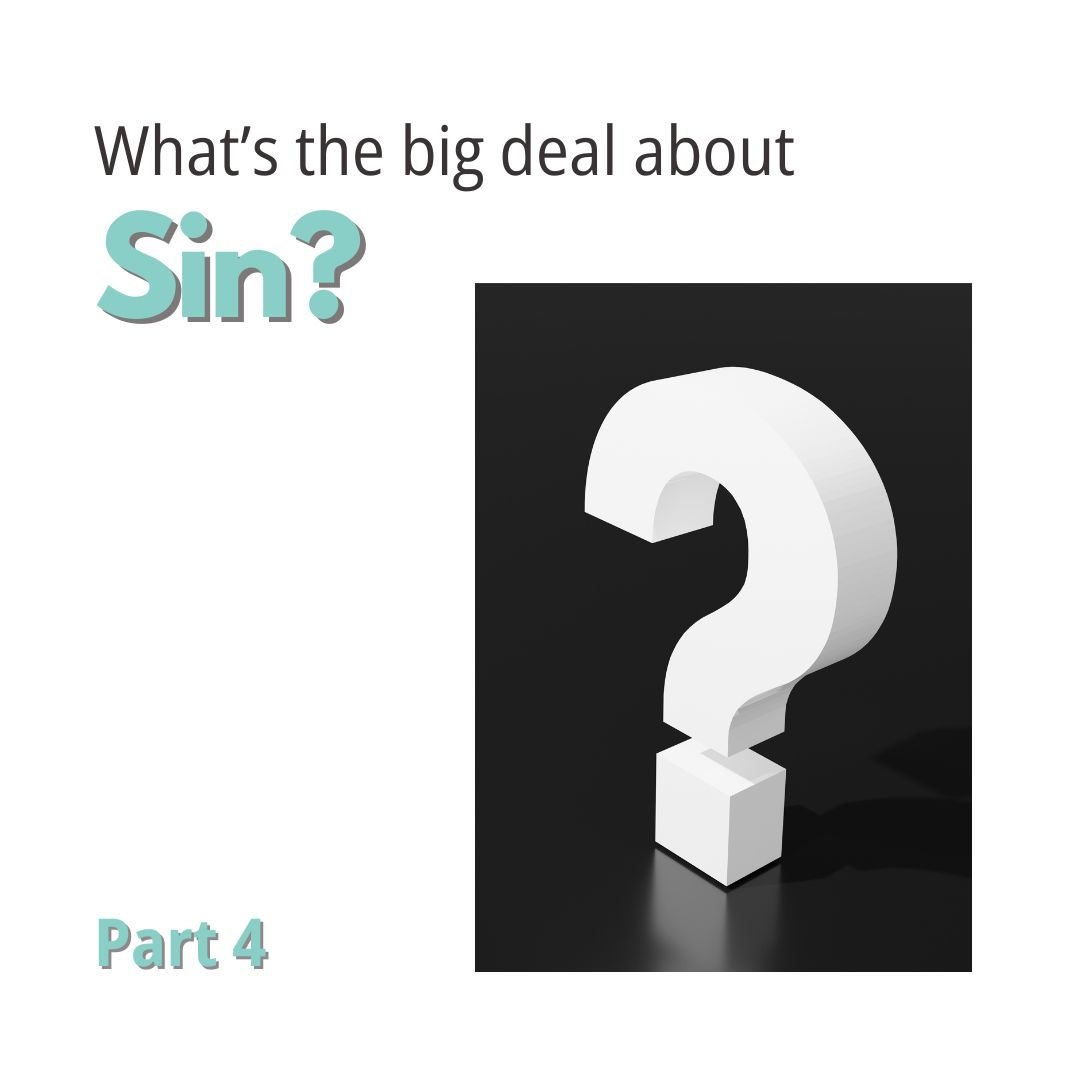What's the Big Deal About Sin? Part 4
Our understanding of sin will never run any deeper than our understanding of God’s character and of the nature of our relationship with him. To even begin to see sin as God does—and as we should—requires us to completely recalibrate how we think about ourselves, about this world, and about our place in it. This is why in Parts 2 and 3 of this series we have begun meditating on Genesis 1 and 2, which were written for just this purpose.
Genesis 1 gives us the big picture. It calls us to witness the creation of the universe and everything in it, to stand in awe of the infinite wisdom and power of God, and to worship. Here we learn the how and why of our existence, the starting points for understanding the sinfulness of sin.
“. . . God created man in his own image,
in the image of God he created him;
male and female he created them.And God blessed them. And God said to them, ‘Be fruitful and multiply and fill the earth and subdue it, and have dominion over the fish of the sea and over the birds of the heavens and over every living thing that moves on the earth’” (1:27-28).
Genesis 2 draws us in close, side-to-side with the Infinite, to peer through his microscope, if you will, and gaze in wonder as he scoops up one infinitesimal patch of soil on our tiny planet, shapes it by hand into a wee likeness of himself, and ever so gently fills two little-bitty new lungs with the breath of the Almighty.
“ . . . the Lord God formed the man of dust from the ground and breathed into his nostrils the breath of life, and the man became a living creature. And the Lord God planted a garden in Eden, in the east, and there he put the man whom he had formed. And out of the ground the Lord God made to spring up every tree that is pleasant to the sight and good for food. The tree of life was in the midst of the garden, and the tree of the knowledge of good and evil . . .
“The Lord God took the man and put him in the garden of Eden to work it and keep it. And the Lord God commanded the man, saying, ‘You may surely eat of every tree of the garden, but of the tree of the knowledge of good and evil you shall not eat, for in the day that you eat of it you shall surely die’” (2:7-9, 15-17).
What’s the how? We exist because God created us. And what is the why? What is the meaning and purpose for our existence? The God of all the universe created us to bear his image. And what does that mean? To begin with, it means he created us to represent him perfectly—to look (in some sense) like him, to act like him, and to rule like him. As David later marveled, “You have . . . crowned him with glory and honor . . . you have put all things under his feet” (Ps 8:5b, 6b). There is no greater honor in all creation than to bear the image of the Creator and to be entrusted with the work of his mighty hands.
There is also no greater responsibility. The fact that God issued commands makes it clear that God was not relinquishing his ultimate authority. As David later proclaims, “The earth is the Lord's and the fullness thereof, the world and those who dwell therein . . .” (Ps 24:1). Man’s dominion is that of a vice-regent. He answers to God. God reserves the right to oversee and to judge.
But there is more than just authority that we are meant to take from all this. The “image” terminology is family language. Let’s look at Genesis 5:
“When God created man, he made him in the likeness of God. Male and female he created them, and he blessed them and named them Man when they were created. When Adam had lived 130 years, he fathered a son in his own likeness, after his image, and named him Seth” (1b-3).
In Genesis 1 we saw “the earth bring forth” (1:24) animals of all kinds, each “according to its kind” (1:11-12, 21, 25). But in the intimate act of shaping man, we witnessed the God of the universe forming not just another animal, but a son “in his own likeness,” (or, you might say, according to his kind). When God created man, he was starting a family. And with the creation of woman he extended to mankind the honor and blessing of multiplying God’s family and in doing so spreading his image, his love, and his dominion across the face of the planet. In short, God created this magnificent earth as a place to raise his family.
Having meditated on the Genesis 1-2 understanding of our relationship to God and the remarkable purpose for which we were created, we are, I pray, better prepared to understand the wickedness of sin and the righteousness (and mercy) of God’s judgment when we get to Genesis 3 in the next article in this series.

